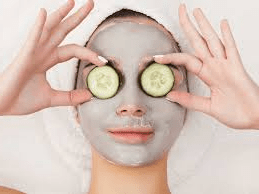
What Does Cold Pressed Oils Mean to an Aromatherapist?

Cold Pressed Oils
It’s a common notion that natural, raw, pressed oils are healthier than those chemically enhanced products derived from petroleum. Natural products already possess a stellar reputation for being healthier simply because they retain much of their naturally found nutrients and taste. But what about those US-produced “organic” cold pressed oils that aren’t really anything more than hydrocarbon solvents? And what about the benefits of using natural oil versus chemically-produced pharmaceutical grade products?
Essential Oils
The health benefits of essential oils vary widely. Some studies have shown that essential oils can reduce the risk of heart disease, lower bad cholesterol, decrease risks of some forms of cancer, and even prevent asthma attacks. Other research has shown that certain essential oils can help to manage other types of neurological disorders, such as seizures, depression, chronic pain, and other ailments.
More recent evidence suggests that essential oils can even suppress tumor growth. There is not conclusive scientific evidence, however, that proves that oils can prevent cancer or reduce the risks of cancer. A good rule of thumb is: Do not assume that just because something passes through the lips of a consumer that it is safe to apply directly to the skin.
Natural Products vs. Chemical-Free
Natural Products vs. Chemical-Free Products What exactly constitutes cold pressed oil benefits? They include many things, including (but not limited to) the following: reduced risk of heart disease, cancer, ADHD (Attention Deficit Hyperactivity Disorder), diabetes, eczema, herpes, irritable bowel syndrome, osteoporosis, and other musculoskeletal problems.
There are also numerous reported skin care and personal care benefits that accompany the use of natural ingredients. Some of these benefits include: less acne, clearer skin, softer hair and nails, and more.
Most oils today are chemical-free or at least contain trace amounts of chemicals. This makes them suitable for use in cosmetics, shampoos, lotions, soaps, skin creams, and more. Those who need to be careful about what they put on their bodies should take special note that cold pressed oils (as opposed to regular petroleum based oils) have a tendency to cause dermatitis, a reddening and blistering of the skin.
Consuming cold pressed oils can cause severe digestive problems (as well), so they should be avoided by those with pre-existing digestive disorders or stomach issues. They should also avoid showering or bathing with any oils, particularly petroleum-based products, as their oils can leave an oily residue behind after they dry.
Essential Oils vs. Carrier Oils
Essential Oils vs. Carrier Oils The term “essential” refers to the molecules which have a double bond, making them less dense than other types of molecules. A pure essential oil is extracted from the plant by using a process called steam distillation, which is essentially reverse-osmosis. When the steam comes in contact with water, the essential oil is separated out into its various components.
The parts are then sent to be further distilled using a pressure washer, before being packed into bottles and sold as oil. There are different methods used to extract essential oils, but all result in the same end product. The process of extraction is important because it determines the quality of the end product.
Carrier Oils vs. Essential Oils
Carrier Oils vs. Essential Oils A good example of carrier oils comes from grape seed. It is commonly used as an ingredient in body lotions, deodorants, and other personal care products. It has been shown to be effective as an antiseptic and natural antibiotic. In addition to that, it has some antioxidant activity and may even help relieve some skin conditions such as psoriasis and acne. That said, it should be noted that it cannot help relieve the symptoms of severe rashes or severe burns.
Cold Pressed Oils vs. Hot Pressed Oils
Cold Pressed Oils vs. Hot Pressed Oils Cold pressed oils undergo a specific process that makes them less concentrated. During that process, the essential oils are heated to a specific point, which changes their chemical structure. As a result, they don’t produce as many the active components as when they were cold pressed. While the concentration of a hot oil may be higher, it will still be significantly less than one cold pressed oil.
Cold pressed essential oils can be very beneficial for a massage therapist. If you want to find out more about them, I highly recommend you do a little bit of research online. There are several sites that discuss the best ways to use them. Before you begin working with them, however, it is important to be fully educated about the different types and how each one can work for you.